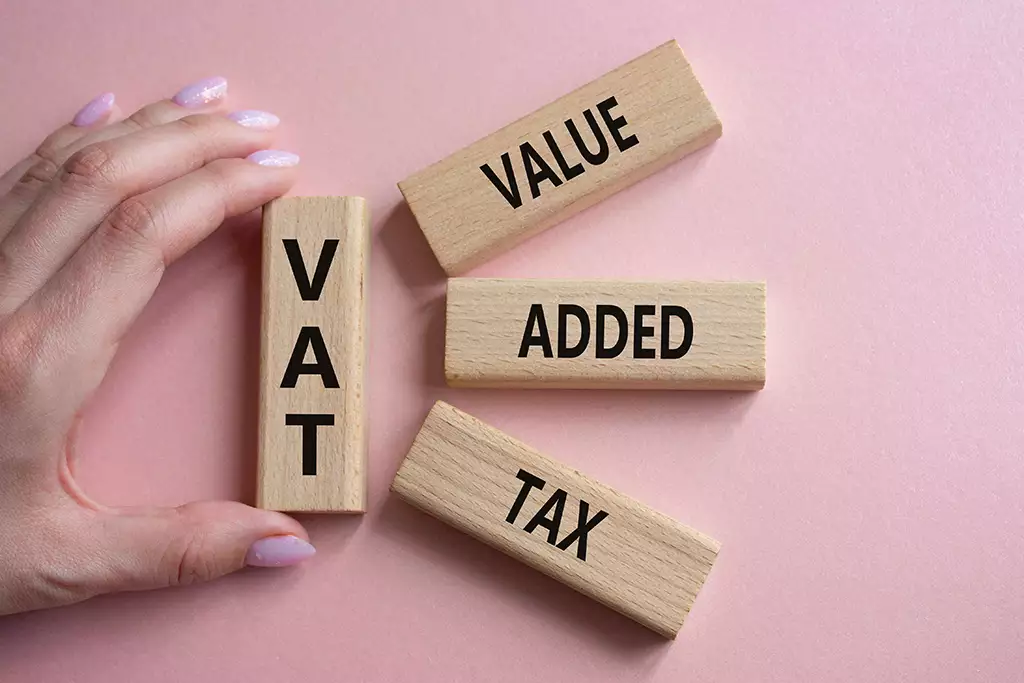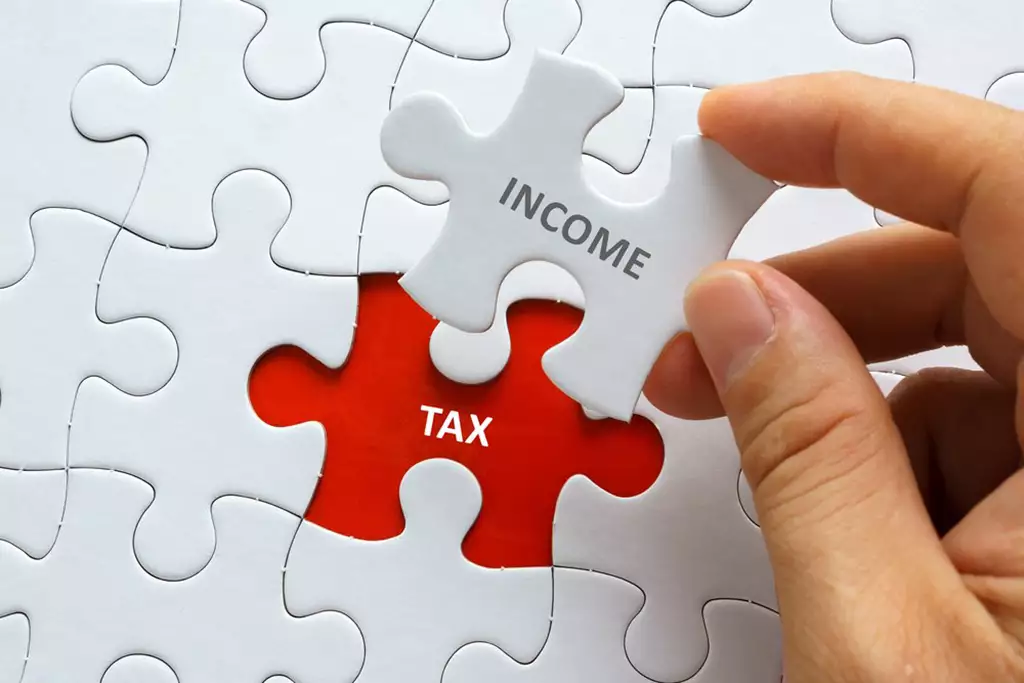As a foreign national, you may be required to pay taxes during your stay in Thailand either as a tourist or expat residing abroad. To avoid penalties or even prosecution, it’s essential to understand which Taxes in Thailand you may be required to pay to the government during your time there.
This page will discuss the common taxes in Thailand that foreigners must pay, how to pay them, and how to legally reduce your tax burden.
VAT in Thailand

Value-added tax (VAT) is a tax charged on the added value of certain goods and services created at each stage of its production or distribution. As a consumer, you will pay this tax the moment you purchase the product or service, in which case the tax will be collected by the business on behalf of the Thai government. All consumers, local or foreign, must pay this tax, but tourists who do not reside in Thailand can get a refund (see below).
The current VAT rate in Thailand is 7% and is imposed on the majority of goods and services, from restaurant meals to souvenirs to tourist activities. However, VAT is often calculated onto the price by the vendor so that the price is a round number and consumers don’t have to do the math before buying to know the final cost.
So even if it appears you did not pay VAT, if you are a tourist in Thailand you should check your receipts to see if it was charged. If so, keep the receipt so you can get your refund.
How Tourists Can Get a VAT Refund in Thailand
Technically, only residents of Thailand are required to pay VAT as the money goes to fund the government. However, it would be too difficult and unwieldy to determine if a consumer is liable for VAT at each checkout, so this money is instead refunded to tourists all at once at the end of your trip.
You can claim a VAT refund in Thailand if you meet the following criteria:
- You are not a Thai national.
- You are not currently domiciled in Thailand.
- You are leaving Thailand on a flight from a Thai International Airport.
- You are leaving Thailand with the good(s) you purchased within 60 days from the date of purchase.
- The good(s) or service(s) you purchased are from locations affixed with the “VAT refund for tourists” label (you must spend at least 2,000 baht at stores with this label).
- You complete a VAT Refund Application for Tourist form.
After meeting the requirements, you can claim your VAT refund in person at the VAT Refund for Tourists counter at a Thai International Airport, submit the documents to the VAT Refund for Tourists office, or mail them to the Thai Revenue Department.
Thai Tourist Tax Coming Back in 2025
The Thai government has proposed the revival of the Thai tourism tax for tourists coming to Thailand. Once the new Thai tourism tax is in place, all visitors will be subjected to tax upon arrival. The amount will vary depending on their mode of transportation.
- Tourists will need to pay a 300 baht tax if arriving by air transportation
- Tourists will need to pay a 150 baht tax if arriving by sea or land transport
However, the government has suggested it may make the tax a flat 300 THB fee for all ports.
The policy was re-proposed as a way to combat over-tourism by increasing funding for infrastructure and building out “secondary” destinations to attract visitors away from congested areas. There is no confirmed date for the tourist tax rollout, but the Thai government expects it to go into effect either in late 2024 or in 2025 at the latest.
Corporate Income Tax

This is an income tax imposed on companies and juridical partnerships set up in Thailand, or established overseas. So, if you operate a company opened in Thailand or operate a branch office for a foreign company, you will pay corporate income tax. When it comes to corporate income tax, you will mainly be taxed on any profits you make after deducting allowable business expenses from the total revenue of your company.
Taxable companies and juridical partnerships include:
- Company or partnership established under Thai law (such as a public limited company and registered partnership).
- Company or partnership established in a foreign region that is carrying out business operations in Thailand or receives income derived from Thai sources.
- A business run by a foreign government body or organization, or any legal entity created under foreign law, for commercial and profitable reasons.
- A joint business venture.
- A foundation or association involved in revenue-generating activities (excluding those specified by the Thai Minister under Section 47 (7) (b) of the Thai Revenue Code.
The default tax rate is based on 20% of net profits earned, although the amount does vary depending on what kind of business or corporate entity you own. For instance, if you control a small and medium enterprise (SME), you will be eligible for a reduced progressive rate of 0% to 20%.
How to Reduce Your Company’s Tax Burden in Thailand
There are ways to lessen the tax burden for your company. One of the best methods involves being promoted by the Thai Board of Investments (BOI), which entitles you to some tax benefits if you operate in an industry Thailand wants to grow locally. These benefits include:
- Corporate tax exemption: Depending on the type of BOI promotion you applied for, your company can receive a corporate tax exemption on net profiles earned from promoted activities, lasting from 3 to 13 years.
- Increased tax deductions: Being promoted by the BOI also lowers the costs of transportation, electricity, and water supply, allowing you to deduct these expenses from your company’s net profits leading to lower corporate income tax.
- Reduced duties on imported materials: Another benefit of BOI promotion is the reduction or waiving of import duties on materials required for operations, lowering their overall costs.
If you have an SME set up, you may also qualify for tax incentives to reduce your burden, especially if it has paid-up capital that’s 5 million baht (or lower) and yearly revenue below 30 million baht.
Personal Income Tax for Foreigners in Thailand
If you’re earning income during your stay in Thailand, you may have to pay personal income tax in most cases. How much you will be taxed depends on how much income you earn every year. The tax rate percentage varies depending on the income tax bracket, ranging from 5% up to 35%. The higher your income, the higher the percentage you must pay on it.
Do All Foreigners Have to Pay Personal Income Tax in Thailand?
There are two scenarios in which you have to pay personal income tax. The first involves the Thai tax source rule, which states that if you receive any form of income derived from local sources, regardless of where you are when earning it, you will be obligated to pay taxes on it. This includes assessable income such as wages and rental income, so if you work remotely for a Thai company or own property in Thailand and collect rent while living abroad, you will be taxed.
The next situation revolves around the Thai tax residence rule, which states that you will need to pay tax if you are a Thai tax resident. You are classified as a Thai tax resident if you stay in the country for at least 180 days in a tax year, which is the same as the calendar year. Any income you earn from local sources as well as any income from foreign sources that you bring into Thailand will be assessable for tax purposes.
All Thai tax residents must file a personal income tax return for their yearly income by March of the year after it was earned. Even if your income does not meet the minimum threshold for taxation, you must file.
How to Reduce Your Thai Personal Income Tax Burden
Tax credits and deductions can reduce your personal income tax burden just like in other countries. However, to learn about all the available options you have, you may want to speak to a Thai tax consultant so that you don’t miss anything and end up overpaying the government.
Another way to reduce the Thai income tax you must pay is to get a visa with tax benefits. One example is the LTR Visa Thailand (Thai Long-Term Resident Visa) which makes any foreign income you earn tax-exempt. If you apply through the LTR Visa for Highly-Skilled Professionals category, you can enjoy a flat income tax rate of 17% regardless of your actual tax bracket.
You can also see if your home country has signed a double-tax treaty with Thailand. A double-tax treaty reduces your tax burden either by only requiring you to pay taxes in one country or by capping the amount of tax you have to pay based on which country has the higher rate. Again, an experienced Thai tax consultant with knowledge of Thai and foreign tax law can help you learn more.
Expert Thai Tax Consulting and Preparation Services in Thailand

If you have any further questions or concerns regarding different taxes in Thailand, reach out to Siam Legal’s tax consultants for additional support. Having assisted foreigners for over 20 years as a full-service law firm, our professional consultants have the qualifications and knowledge to ensure you understand your tax obligations and can minimize your burden.
Our tax team will evaluate your current financial situation and identify any deductions and credits that you can take advantage of so you can legally reduce the amount you owe. More importantly, we will assist you in navigating the complexities of acquiring a Tax Identification Number (TIN) and filing a tax return, giving you peace of mind knowing that a mistake won’t leave you open to penalties or prosecution.
Contact Siam Legal today to book a consultation and find out how we can eliminate your tax stress and help you keep as much of your money as possible.
Thai Taxes on Foreigners FAQ

When is the Deadline for Filing a Tax Return in Thailand?
There are two main tax seasons in Thailand. The first involves annual tax returns, which run from the beginning of the year until the end of March. This applies to all forms of assessable income and you need to file most tax returns by March 31st within that year. The second tax season involves mid-year tax returns which run between July 1st to September 31st. This applies only to certain types of assessable income.
What Types of Income are Taxable in Thailand?
If you earn assessable income in Thailand, then you will have to pay taxes on it. Assessable income includes not only money but also any property or benefit that can be assigned a monetary value. It also covers any taxes paid on your behalf, as well as tax credits under Section 47 of the Thai Revenue Code. If you have any assessable income, you will need to pay taxes on them to the relevant tax authorities.
This can include income such as:
- Employment income such as salary and wages
- Income derived from self-employment
- Income earned from intellectual property and goodwill
- Returns received from investments, interest payments, and other financial sources
- Rental payments from any property that you’ve either leased or gain ownership of
- Income from liberal professions
- Income from contract work
- Income from any other activity not specified above (such as commerce, agriculture, industry, or transport among other examples)
What Happens if I Fail to File a Tax Return in Time?
If you are required to pay taxes but fail to do so or intentionally misrepresent your income, you will be subjected to penalties that may compromise your stay in Thailand. These can range from fines to imprisonment.
How Do I File Taxes in Thailand?
In each tax year, you are required to file a tax return before the deadline. You can do this at a Thai Revenue Department branch office located in the current jurisdiction that you are legally domiciled in, or do so online through their website. If you need any help in filing your tax return, it is recommended that you reach out to our tax consultants at Siam Legal.
Can I Be Exempted from Paying Thai Income Tax?
In some situations, tax exemptions may be available to you. One way to go about this is to apply for a Thai visa that offers tax exemptions as part of its benefits. A clear example of one is the LTR Visa, which exempts you from having to pay taxes in Thailand on any foreign income you earn.





































